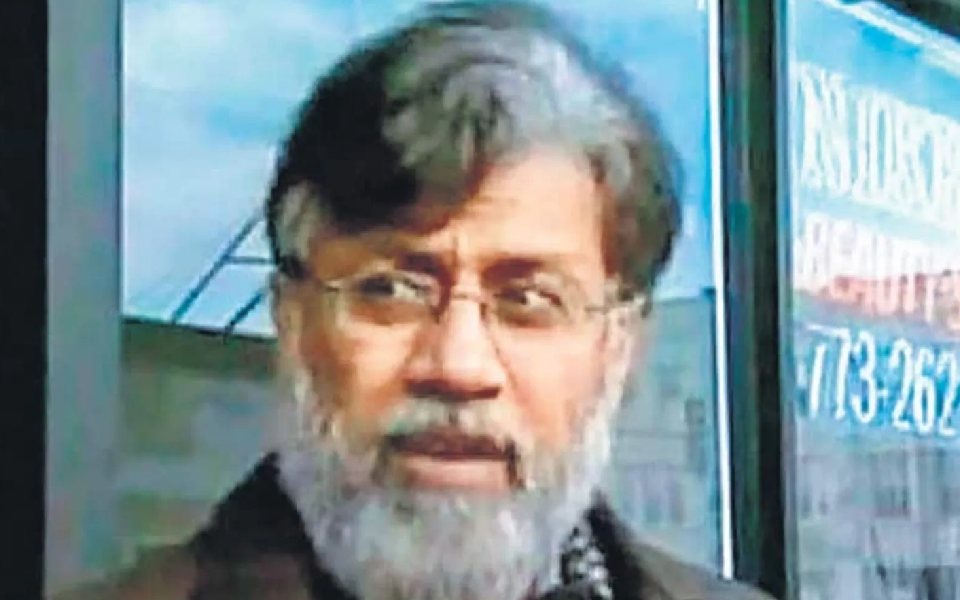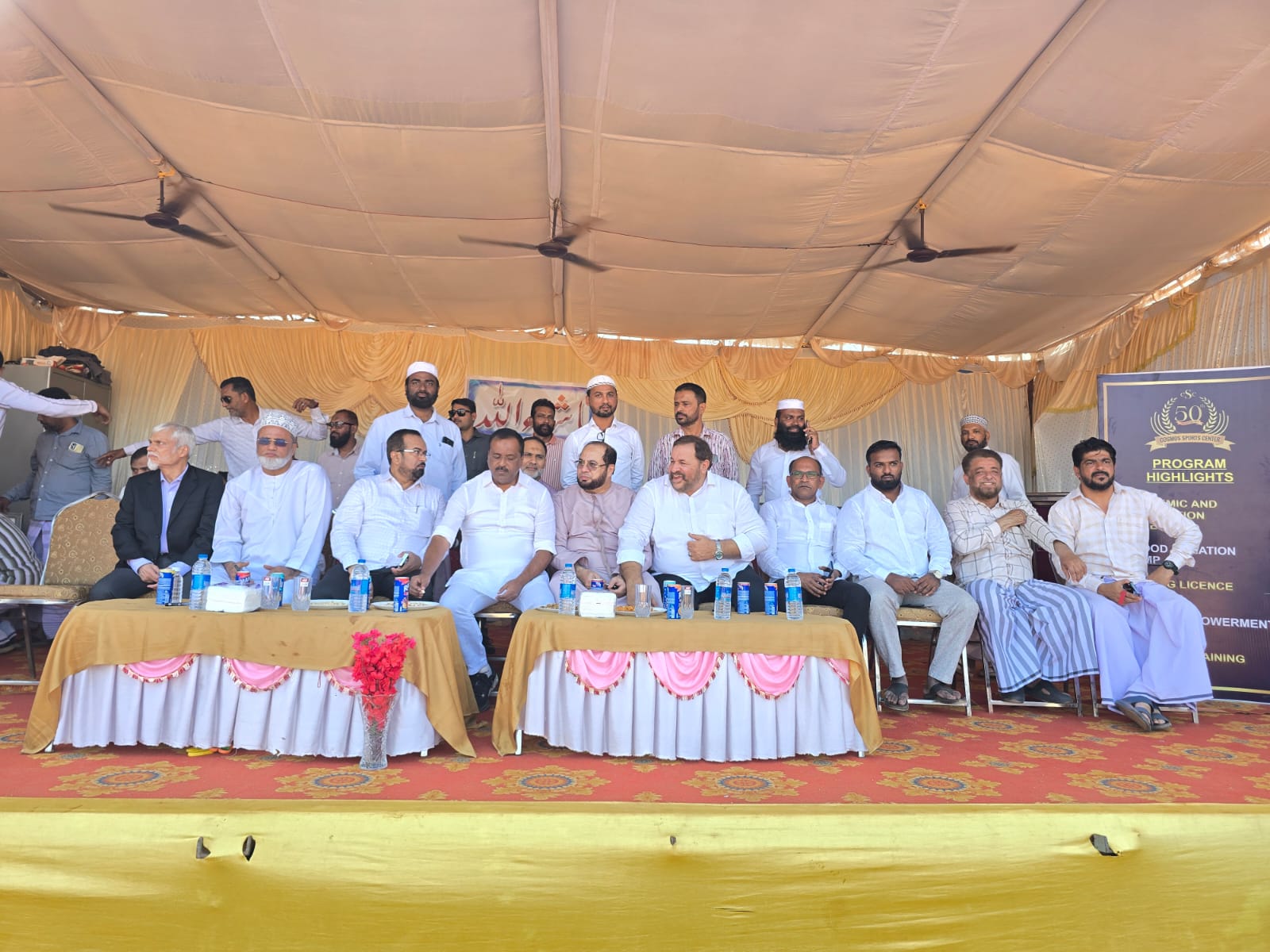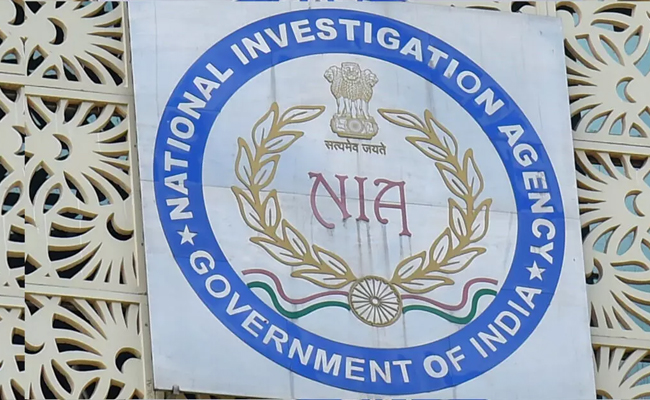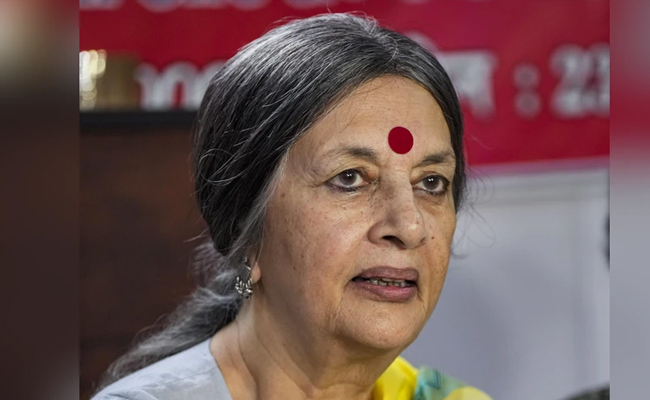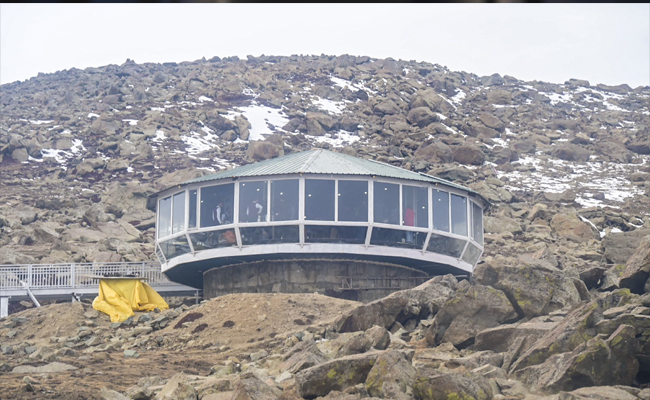New Delhi, Apr 10 (PTI): Tahawwur Hussain Rana, a key accused in the 26/11 Mumbai terror attacks, was brought to India after being "successfully extradited" from the US and was formally arrested, the National Investigation Agency (NIA) announced on Thursday.
The 64-year-old Canadian citizen of Pakistani origin landed in Delhi in a special plane from Los Angeles Thursday evening, ending days of speculation of when and how he will be extradited, officials said.
In a statement late evening, the NIA said Rana was "formally arrested immediately after his arrival at Delhi airport".
Rana was escorted to Delhi by teams of NIA and National Security Guard (NSG), the agency said.
An NIA team at the airport arrested Rana soon after he emerged from the airplane, upon completion of all the necessary legal formalities, it said.
The agency in an earlier statement said that it had secured the successful extradition after years of sustained and concerted efforts to bring to justice the key conspirator and "mastermind of the deadly attack" that claimed 166 lives.
"With the active assistance of USDoJ, the US Sky Marshal, NIA worked closely with other Indian intelligence agencies, NSG through the entire extradition process, which also saw India's Ministry of External Affairs and Ministry of Home Affairs coordinating with the other relevant authorities in the United States to take the matter to its successful conclusion," the statement read.
Senior advocate Dayan Krishnan and special public prosecutor Narender Mann, who are representing the NIA, reached the Patiala House court premises shortly after news that Rana had landed in Delhi. Police officials asked mediapersons to leave and said they were ensuring the court premises were fully vacant. The lawyers, however, refused to comment.
Special NIA judge Chander Jit Singh is hearing the case against Rana. Advocate Piyush Sachdeva from Delhi Legal Services Authority is representing the accused.
Meanwhile, tight security has been ensured outside the NIA headquarters at the CGO complex here and the entire premises has been cordoned off by security personnel of Delhi Police and Central Reserve Police Force (CRPF).
Key roads outside and around the NIA office has been closed for any vehicular traffic. Entry and exit from gate no 2 of Jawaharlal Nehru Stadium metro station, which is opposite the probe agency's office, has been barred.
The announcement that Rana would be finally extradited came when Prime Minister Narendra Modi visited the US capital in February. "We are giving a very violent man back to India immediately to face justice in India," US President Donald Trump said at a joint press conference with Modi on February 14.
Trump said his administration has approved the extradition of "very evil people of the world" Rana "to face justice in India".
Rana was lodged in the Metropolitan Detention Centre in Los Angeles.
He was held in judicial custody in the US following proceedings initiated under the India-US Extradition Treaty for his extradition. The extradition finally came through after Rana exhausted all legal avenues to stay the move.
The District Court for the Central District of California had ordered his extradition on May 16, 2023. Rana then filed multiple litigations in the Ninth Circuit Court of Appeals, all of which were rejected.
He subsequently filed a petition for a writ of certiorari, two habeas petitions, and an emergency application before the US Supreme Court, which were also denied.
"The extradition proceedings were initiated between the two countries after India eventually secured a surrender warrant for the wanted terrorist from the US government," the NIA said.
Rana is accused of conspiring with David Coleman Headley alias Daood Gilani, and operatives of designated terrorist organisations Lashkar-e-Taiba (LeT) and Harkat-ul-Jihadi Islami (HUJI) along with other Pakistan-based co-conspirators, to carry out the the three-day terror siege of India's financial capital.
Both LeT and HUJI have been declared terrorist organisations by the Indian government under the Unlawful Activities (Prevention) Act, 1967.
Among the 166 killed were US, British and Israeli nationals. Besides, 238 were injured in the mayhem carried out by a group of 10 Pakistani terrorists on a railway station, two luxury hotels and a Jewish centre after they sneaked into Mumbai through the Arabian Sea.
The terrorists had targeted multiple iconic locations in Mumbai, including the Taj Mahal and Oberoi hotels, Leopold Cafe, Chabad House and Chhatrapati Shivaji Terminus train station, each of which Headley had scouted in advance.
Rana would be the third person to be sent on trial in India in the case after Ajmal Kasab and Zabiuddin Ansari alias Abu Jundal. In November 2012, Ajmal Amir Kasab, the lone surviving terrorist among the Pakistani group, was hanged to death in Yerawada Jail in Pune.
Rana had served in the Pakistan Army medical corps before emigrating to Canada in late 1990s and started his immigration consultancy firm. He later moved to the US and set up an office in Chicago.
Through his firm, Rana gave cover to Headley to carry out reconnaissance mission in Mumbai so that the terrorists could launch the attacks.
The officials said Rana's extradition would help probe agencies expose the role of Pakistani state actors behind the 26/11 attacks and may shed new light on the investigation.
His extradition from the US could provide important leads into his travels in parts of northern and southern India days before the carnage in 2008, NIA officials said.
Rana visited Hapur and Agra in Uttar Pradesh, Delhi, Kochi in Kerala, Ahmedabad in Gujarat, and Mumbai in Maharashtra with his wife Samraz Rana Akhtar between November 13 and November 21, 2008, they said.
Rana had submitted business sponsor letters from 'Immigrant Law Center' and property Tax payment notice from the Cook County as his address proof.
The Federal Bureau of Investigation (FBI) of the US arrested Rana in Chicago a year after the attacks in October 2009 for providing support for an aborted plan to behead employees of a newspaper, in Copenhagen (Denmark) in retaliation for the publication of cartoons depicting the Prophet Mohammed in it, and also for providing material support to Pakistan-based terrorist outfit LeT, which orchestrated the Mumbai attacks.
However, Rana was acquitted of conspiracy to provide material support to the Mumbai terror attacks. He was, however, convicted in 2011 in the other case and sentenced to 14 years, the officials said.
India has been trying to extradite Rana for many years because of his association with LeT and HUJI, Headley and for his active involvement in the Mumbai attacks.
It is alleged that Rana was aware of Headley's terror links and even helped in reconnaissance of targets in Mumbai and planning the attacks on the National Defence College (NDC) in New Delhi and Chabad House in Mumbai.
The NIA had registered a case on November 11, 2009 under sections 121A of Indian Penal Code, Section 18 of UAPA and Section 6(2) SAARC Convention (Suppression of Terrorism) Act against Headley, Rana and others for being part of a criminal conspiracy with LeT and HUJI members to commit terrorist acts in New Delhi and other places in India.
During the NIA investigation, the roles of senior functionaries of banned terror groups LeT and HUJI -- Hafiz Muhammad Saeed alias Tayyaji, Zaki-ur-Rehman Lakhvi, Sajjid Majid alias Wasi, Illyas Kashmiri and Abdur Rehman Hashim Syed alias Major Abdurrehman alias Pasha have emerged.
They were working in active connivance and assistance from Pakistan spy agency ISI's officers namely Major Iqbal alias Major Ali, Major Sameer Ali alias Major Samir, all residents of Pakistan, the officials said.
Let the Truth be known. If you read VB and like VB, please be a VB Supporter and Help us deliver the Truth to one and all.
Bhatkal: Speaker of the Karnataka Legislative Assembly U. T. Khader visited Bhatkal in Uttara Kannada district on Saturday and attended a local cricket match being played as part of a tournament organised by the Cosmos Sports Centre of Bhatkal.
After attending a programme at Anjuman Hami-E-Muslimeen, Khader proceeded to the Bhatkal Taluka Stadium, where the tournament is underway. He was accompanied by office-bearers of the Cosmos Sports Centre and several local community leaders.
Those present during the visit included President of Majlis-e-Islah Wa Tanzeem and former JD(S) leader Inayathullah Shabandri, Vice President of Tanzeem Atiqur Rahman Muniri, General Secretary Abdul Raqeeb MJ, President of Cosmos Sports Centre Ismail Anjum, Managing Director of Mohtisham Complexes S. M. Arshad, former president of the Bhatkal Muslim Youth Federation Imtiyaz Udyawar, among others.
Addressing players and organisers, Khader extended his best wishes to the participating teams and urged the players to uphold the spirit of sportsmanship. He said such tournaments help promote unity and brotherhood among the youth.
The cricket tournament began on November 21 and will conclude with the final match on December 21. It is being organised as part of the golden jubilee celebrations of the Cosmos Sports Centre.
Cosmos Sports Centre is one of the member clubs of the Bhatkal Muslim Youth Federation and is known for its active role in promoting sports in the town. Apart from sporting activities, the centre is also involved in various social and community initiatives, including efforts to promote education among students.


